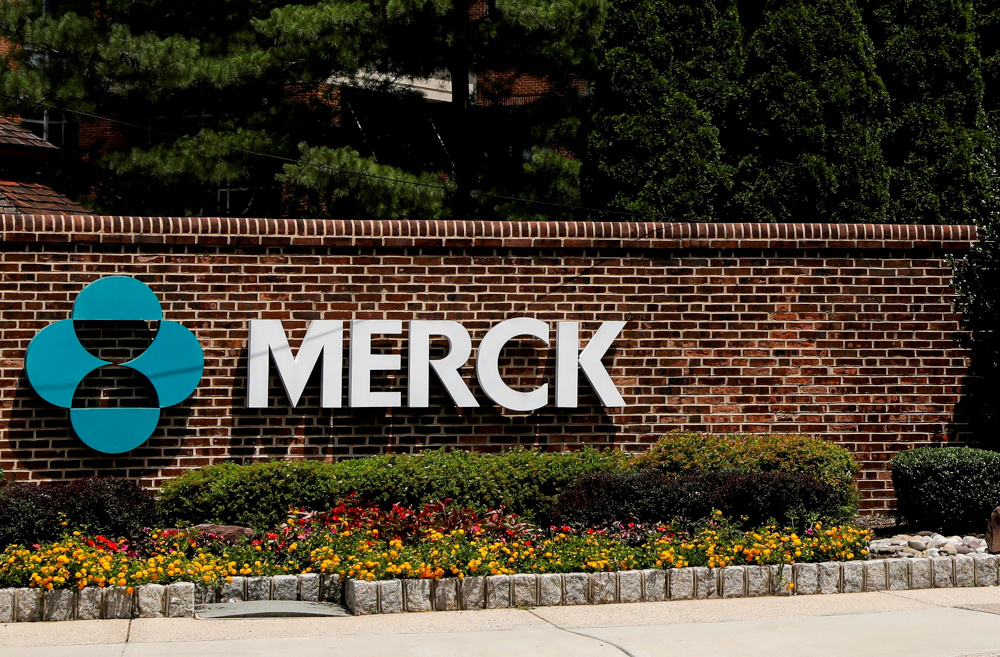WASHINGTON, Oct 12 — US pharmaceutical giant Merck on Monday applied for emergency use authorisation of its oral anti-Covid drug in the United States, a major step towards finding a simple pill to treat the disease.
Merck has submitted the application for molnupiravir, which it said earlier this month was shown to reduce hospitalisations by 50 per cent.
It also prevented 100 per cent of deaths compared to a placebo, but the sample size was relatively small and the figure can’t yet be reliably extrapolated.
Merck, which is called MSD outside the United States and Canada, said it was working “with regulatory agencies worldwide to submit applications for emergency use or marketing authorisation in the coming months.”
“The extraordinary impact of this pandemic demands that we move with unprecedented urgency,” Robert Davis, the company’s chief executive officer and president said in the statement.
“That is what our teams have done by submitting this application for molnupiravir to the FDA within 10 days of receiving the data,” he added.
In a late stage clinical trial, Merck and its partner Ridgeback Biotherapeutics evaluated data from around 770 patients — roughly half of whom received either a five-day course of the pill, while the other received a placebo.
All the patients had lab-confirmed Covid-19 with symptoms that developed within five days of them being assigned to their respective groups.
Of the patients who received molnupiravir, 7.3 per cent were hospitalised by day 29, compared to 14.1 per cent of those on a placebo — a relative risk reduction of around 50 per cent.
Importantly, no deaths were reported in patients who received molnupiravir, as compared to eight deaths in patients who received placebo.
Efficacy was said to hold up against variants of concern, including Delta, and the drug had a good safety profile.
Merck said in the statement that it expects to produce 10 million five-day-courses of treatment by the end of 2021, with more courses expected to be produced in 2022.
The US has procured 1.7 million courses of molnupiravir should it be approved, with the option to buy more, and global health agency Unitaid has said it was working with a partnership called ACT-Accelerator to secure supply for low- and middle-income countries.
Merck said it “plans to implement a tiered pricing approach based on World Bank country income criteria to reflect countries’ relative ability to finance their health response to the pandemic.”
The company said that, pending authorisations, it has also signed non-exclusive voluntary licencing agreements for molnupiravir with established Indian generic manufacturers to accelerate the drug’s availability in more than 100 low- and middle-income countries.
No miracle cure
A simple pill to treat the coronavirus has been sought since the start of the pandemic and Friday’s announcement was hailed as a major step towards that goal.
Until now, Covid therapeutics such as monoclonal antibodies and Gilead’s remdesivir have been administered intravenously.
But experts have said it is not a miracle cure and should complement vaccines, not replace them.
They have also cautioned it would be critical to administer the drug early for it to be effective.
Since it isn’t always clear who is at risk for developing severe disease, it would have the greatest impact if it were cheap enough and safe enough to distribute widely.
Molnupiravir belongs to a class of antiviral drugs called polymerase inhibitors, which work by targeting an enzyme that viruses need to copy their genetic material, and introducing mutations that leave them unable to replicate — known as “error catastrophe.”
Such drugs are expected to be more variant-proof than monoclonal antibody treatments, which target a surface protein of the virus that is continually evolving.
Molnupiravir was initially developed as an inhibitor of influenza and respiratory syncytial virus, two other important acute respiratory infections, by a team at Emory University. — AFP






















